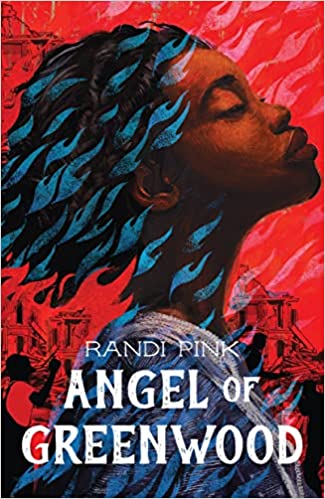 As soon as I knew this book existed, I bought it. It’s set amidst the Tulsa Race Massacre. I have a special interest in that event because I grew up in Tulsa and knew nothing about it until about five years ago. It blows my mind that this is something that was “forgotten.” It makes me so mad, but it fits right in with all the Republicans who are insisting that the unsavory parts of our history shouldn’t be taught in school because it might make some little white kids feel guilty. A little guilt never hurt anyone, and it would make it easier for them to understand their privilege. I think this is actually quite important.
As soon as I knew this book existed, I bought it. It’s set amidst the Tulsa Race Massacre. I have a special interest in that event because I grew up in Tulsa and knew nothing about it until about five years ago. It blows my mind that this is something that was “forgotten.” It makes me so mad, but it fits right in with all the Republicans who are insisting that the unsavory parts of our history shouldn’t be taught in school because it might make some little white kids feel guilty. A little guilt never hurt anyone, and it would make it easier for them to understand their privilege. I think this is actually quite important.
The Setup
But anyway, on to the story itself. It’s actually a rather unlikely love story between Angel and Isaiah, the town’s angel and a rough-around-the-edges boy. Isaiah in particular is secretly passionate about poetry, philosophy, and Black rights. He’s a big follower of W.E.B Du Bois and so he hates Du Bois’ nemesis, Booker T. Washington. Their school is named after Washington, and Angel is a fan of his and thinks Du Bois is too much.
A Bit of Philosophy
So I had of course heard about both of these men, but I knew very little. But when Isaiah and Angel get thrown together for a unusual summer job arranged by their English teacher, they talk about the two philosophies on improving the rights of Black people. From their discussions, it was clear that Du Bois was more aggressive while Washington advocated for quieter change. I sort of imagined it as analogous to the differences between Malcolm X and Martin Luther King, Jr.
But I happened to stumble across an article about Washington in The Atlantic and learned a little more about him—his main belief was that individual industry would bring Black people into the country’s economy, and they’d then become valued by everyone. Basically, hard work was critical, but it wasn’t just working hard—it was also working smart. He founded the Tuskegee Institute and ensured that a lot of Black men were trained in trades that would help them join the economy like he wanted. So I thought it was interesting and a little subtle, even though it’s kind of clear to me that that approach is never going to be enough.
However, the economy perspective not working reminds me of migrant laborers who make it possible for us to have inexpensive fruit, all because they’re being exploited and working for criminally low pay. Also, there are a lot of other people from Latin America that make up a good portion in the back of the house in restaurants across the country, some legal, some not. Their value in our economy (keeping prices low and keeping restaurants open) does not outweigh the hatred that so many people have for them for not being white.
The Story
Anyway, back to the book. Angel and Isaiah fall in love while riding around in a three-wheeled bike with a sidecar and a bin to store books so they can share books with people in the Greenwood community. This was all in the days leading up to the attacks, which started a little after midnight June 1st, 1921. Each of them plays an important role in helping their neighbors. Despite the bravery and efforts of real people like Angel and Isaiah, it’s known that a several hundred people were killed that night.
Although everything in the story obviously leads up to the attacks, that night doesn’t dominate it. It really is a story about young people who are living in a rather idyllic place but who are aware that they are privileged to be there, and also know that nothing in life is guaranteed.
Summary
The book does what historical fiction does best—it shows that the people who lived through significant events were real people who the reader can empathize with. You will root for both Angel and Isaiah not just to end up together, or even just to survive, but to actually to show the greatness within each of them. And the book delivers on that.
As a totally not important side note, I also absolutely love the cover. It’s dramatic and somehow captures both the violence of that night but also the peacefulness the character Angel embodies.
For more, follow my blog for more reviews and news about my writing, and consider signing up for my newsletter.
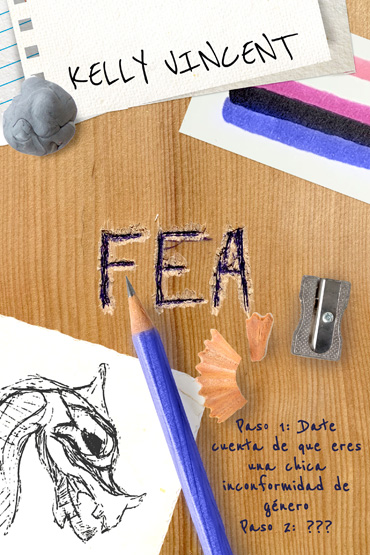
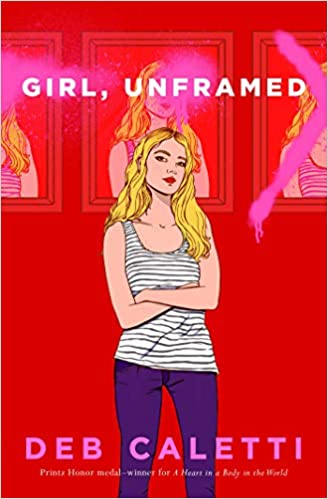 I’m a big fan of Deb Caletti and have reviewed some of her books here (
I’m a big fan of Deb Caletti and have reviewed some of her books here (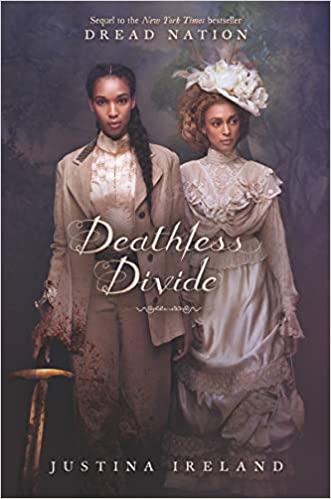 Context
Context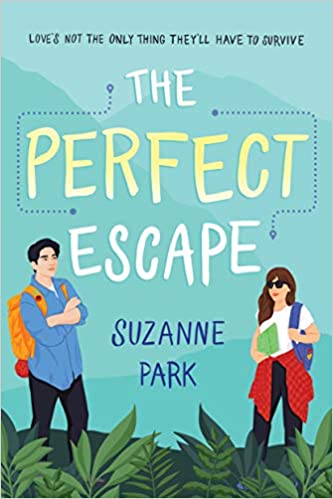
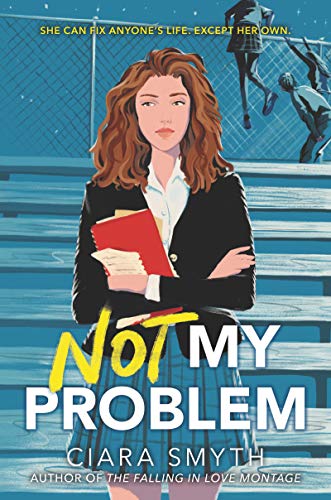
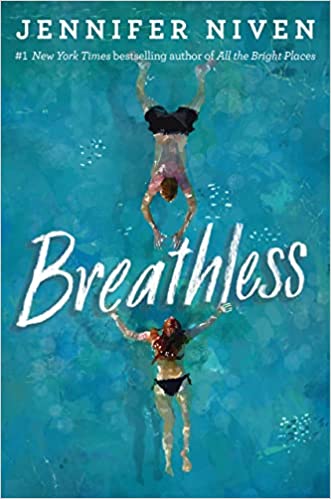 I am a big fan of Niven’s first book (All the Bright Places—it’s one of my favorite books) so I’ve read both her others, including Breathless. One thing that I like about her books overall is that they’re all different. Her first two feature dual perspective, on the girl’s and one the boy’s, but in this one, she sticks with the single protagonist, a girl named Claude who’s just about to graduate high school when the book opens.
I am a big fan of Niven’s first book (All the Bright Places—it’s one of my favorite books) so I’ve read both her others, including Breathless. One thing that I like about her books overall is that they’re all different. Her first two feature dual perspective, on the girl’s and one the boy’s, but in this one, she sticks with the single protagonist, a girl named Claude who’s just about to graduate high school when the book opens.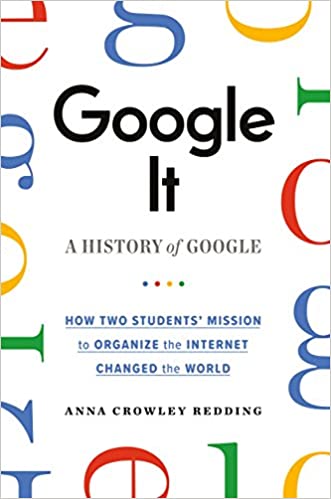 I’ve previously mentioned that I’ve been struggling to get myself to read for months. It’s a strange thing, given how much I’ve loved reading all my life. I recently did manage to finish another YA nonfiction book, which was really engaging and it’s only the reading weirdness I’ve got going that made me take so long to finish it.
I’ve previously mentioned that I’ve been struggling to get myself to read for months. It’s a strange thing, given how much I’ve loved reading all my life. I recently did manage to finish another YA nonfiction book, which was really engaging and it’s only the reading weirdness I’ve got going that made me take so long to finish it.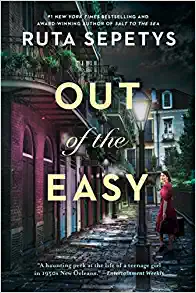 Josie is one of those amazing characters who, like a handful of incredible people I’ve known in real life, wants more out of her life than what she’s been dealt as the daughter of a brothel narcissistic prostitute—and she’s willing to work for it. It’s the 1950s in New Orleans and life is hard for a lot of people. But Josie’s observant and smart (both academically and street-smart), and she has a great deal of self-respect. It’s virtually impossible not to like her and root for her.
Josie is one of those amazing characters who, like a handful of incredible people I’ve known in real life, wants more out of her life than what she’s been dealt as the daughter of a brothel narcissistic prostitute—and she’s willing to work for it. It’s the 1950s in New Orleans and life is hard for a lot of people. But Josie’s observant and smart (both academically and street-smart), and she has a great deal of self-respect. It’s virtually impossible not to like her and root for her.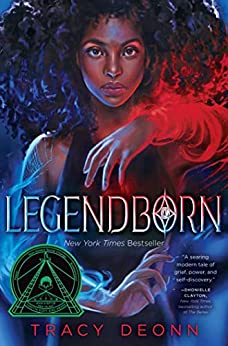 Bree Matthews is a girl with a plan that will help her deal with her mother’s recent death. It also is academically sound and will help her in other ways, even though it will also unexpectedly lead to her getting involved in ancient lore she never knew was real.
Bree Matthews is a girl with a plan that will help her deal with her mother’s recent death. It also is academically sound and will help her in other ways, even though it will also unexpectedly lead to her getting involved in ancient lore she never knew was real.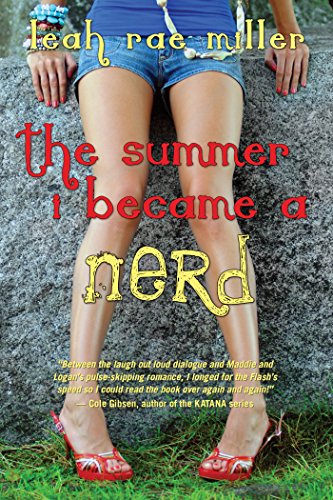 Maddie has several things she’s passionate about, but none of them are the things she’s “supposed” to care about. She’s a cheerleader dating one of the school’s finest catches—the quarterback—and everyone has forgotten a disastrous incident in junior high, where she outed herself as a nerdy and very enthusiastic comic book fan and was laughed off the costume contest stage. The only thing she could think to do was pretend it never happened, and never, ever mention comics in front of anybody ever again.
Maddie has several things she’s passionate about, but none of them are the things she’s “supposed” to care about. She’s a cheerleader dating one of the school’s finest catches—the quarterback—and everyone has forgotten a disastrous incident in junior high, where she outed herself as a nerdy and very enthusiastic comic book fan and was laughed off the costume contest stage. The only thing she could think to do was pretend it never happened, and never, ever mention comics in front of anybody ever again.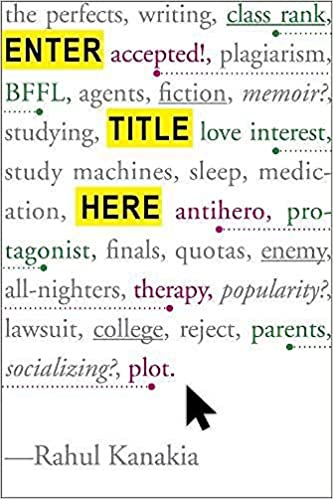 Rahul Kanakia’s pathologically competitive and high-achieving teenager Reshma Kapoor may cause less bloodshed than a favorite literary psyche authors love to explore—the serial killer—but she’s a fresher voice and even more deliciously warped. Early on, Reshma ponders her social life, concluding that “Alexandra is probably the closest thing I have to a friend. Which isn’t that close, because she’s not actually my friend at all: she just sells me Adderall sometimes.” This is exactly who Reshma is. She’s laser-focused on maintaining a perfect GPA in order to be valedictorian so she can get into Stanford. She will stop at nothing to make that happen, and if drugs give her the edge she needs, so be it. It is a joy to watch her, waiting for the train wreck.
Rahul Kanakia’s pathologically competitive and high-achieving teenager Reshma Kapoor may cause less bloodshed than a favorite literary psyche authors love to explore—the serial killer—but she’s a fresher voice and even more deliciously warped. Early on, Reshma ponders her social life, concluding that “Alexandra is probably the closest thing I have to a friend. Which isn’t that close, because she’s not actually my friend at all: she just sells me Adderall sometimes.” This is exactly who Reshma is. She’s laser-focused on maintaining a perfect GPA in order to be valedictorian so she can get into Stanford. She will stop at nothing to make that happen, and if drugs give her the edge she needs, so be it. It is a joy to watch her, waiting for the train wreck.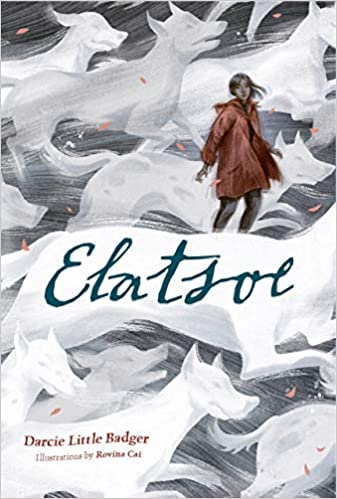 I lucked into finding this book to fulfill the “genre novel by an Indigenous, First Nations, or Native American author” category for the Read Harder challenge (which I am so not going to finish—my reading has slowed so much this year). It definitely fits that bill, as an urban fantasy grounded in Apache and other native cultures. The characters exist in an unusual world where certain aspects of the supernatural are recognized and handled in different ways, but otherwise it is just like modern America, microaggressions and all.
I lucked into finding this book to fulfill the “genre novel by an Indigenous, First Nations, or Native American author” category for the Read Harder challenge (which I am so not going to finish—my reading has slowed so much this year). It definitely fits that bill, as an urban fantasy grounded in Apache and other native cultures. The characters exist in an unusual world where certain aspects of the supernatural are recognized and handled in different ways, but otherwise it is just like modern America, microaggressions and all.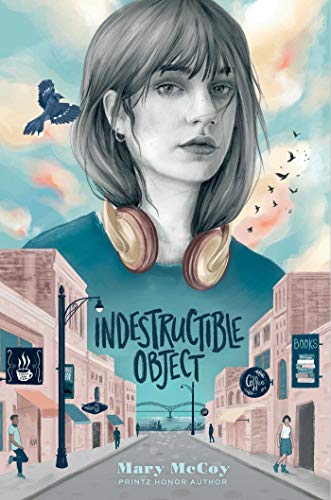 This is my third McCoy book, and one thing I think is cool is that they’ve all been fairly different from each other. Though this one and I, Claudia do share some similarities, in that both protagonists are recording their experiences (I, Claudia in an epistolary fashion, and Indestructible Object as within-the-story podcasts).
This is my third McCoy book, and one thing I think is cool is that they’ve all been fairly different from each other. Though this one and I, Claudia do share some similarities, in that both protagonists are recording their experiences (I, Claudia in an epistolary fashion, and Indestructible Object as within-the-story podcasts).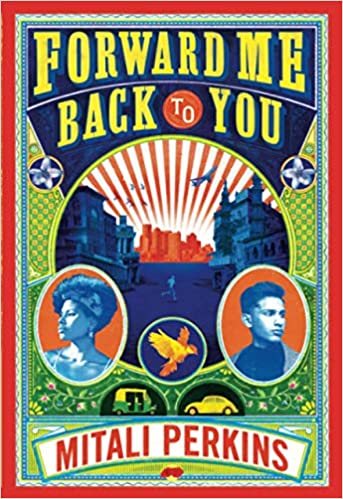 I enjoyed one of Perkins’ earlier books, which I reviewed here. Forward Me Back to You is another winner.
I enjoyed one of Perkins’ earlier books, which I reviewed here. Forward Me Back to You is another winner.